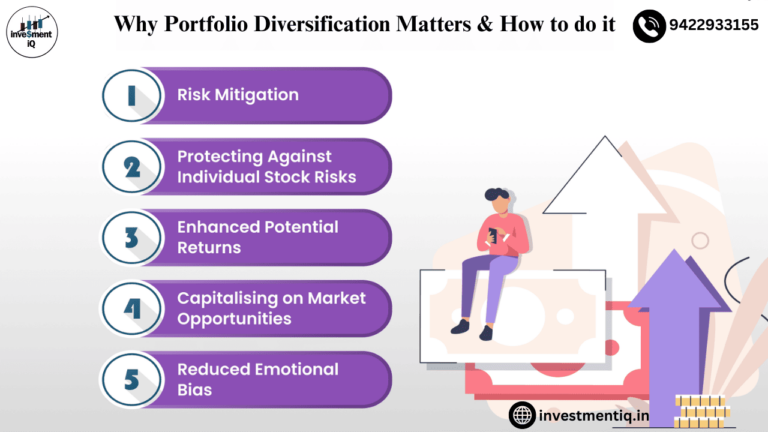Artificial Intelligence (AI) has revolutionized various industries, and the investment sector is no exception. Over the past few years, AI has significantly impacted the way investors make decisions, optimize portfolios, and predict market trends. By leveraging the power of machine learning, data analytics, and automation, AI is shaping contemporary investment techniques in profound ways. In this blog, we will explore how AI is transforming investment strategies and techniques, and how investors can harness its capabilities for better decision-making.
1. Enhanced Data Analysis and Predictive Modeling
One of the most significant impacts AI has had on contemporary investment techniques is its ability to process and analyze vast amounts of data quickly and efficiently. Traditional investment methods rely heavily on human analysis of financial reports, market data, and trends. However, AI-powered algorithms can analyze much larger datasets—ranging from historical market trends to real-time economic indicators and news sentiment—giving investors a more comprehensive view of the market.
Machine learning models, in particular, can identify patterns and correlations in data that might not be immediately obvious to human analysts. By using predictive models, AI can help investors forecast market movements, estimate asset prices, and assess the probability of specific investment outcomes. These advanced algorithms can also adapt to new data, constantly improving the accuracy of predictions over time.
2. Algorithmic and High-Frequency Trading
Algorithmic trading, a technique that relies on computer algorithms to execute trades at high speeds, has been around for years. However, AI has taken this to the next level by incorporating machine learning models that can adapt and optimize trading strategies in real time. AI can analyze market conditions, news, and even social media sentiment to inform trading decisions almost instantaneously.
High-frequency trading (HFT) is one of the most prominent areas where AI has had a significant impact. By executing thousands of trades per second, AI-powered systems can take advantage of tiny price movements that are invisible to human traders. The speed and accuracy of these AI systems allow them to gain an edge over traditional traders, offering the potential for more profitable outcomes, especially in volatile markets.
3. Personalized Investment Strategies
Another area where AI is making waves is in the personalization of investment strategies. Robo-advisors, powered by AI, have become a popular tool for retail investors. These automated platforms analyze an investor’s financial goals, risk tolerance, and time horizon to create a customized investment portfolio. With AI’s help, robo-advisors can continuously monitor and adjust portfolios in response to changes in the market or in the investor’s financial situation.
Furthermore, AI-driven platforms can help individuals with less financial expertise make smarter investment decisions by guiding them toward optimal asset allocations. By offering personalized, data-driven advice, AI is democratizing access to high-quality investment strategies and helping investors make more informed decisions.
4. Risk Management and Portfolio Optimization
AI plays a critical role in improving risk management and optimizing investment portfolios. Traditional portfolio management relies on asset diversification to spread risk, but AI can take this a step further by using advanced techniques such as Monte Carlo simulations, which can model various market scenarios and outcomes.
By analyzing historical data, AI systems can better identify patterns of risk and suggest ways to optimize asset allocation. Machine learning algorithms can also detect emerging risks that might be overlooked by human analysts, allowing investors to adjust their portfolios before market shifts occur.
In addition, AI can help create more dynamic portfolios by automatically rebalancing them based on market conditions, individual preferences, and risk profiles. This reduces the reliance on manual adjustments, streamlining the process and ensuring that portfolios remain optimized even in fast-changing markets.
5. Sentiment Analysis and Social Media Monitoring
AI-powered sentiment analysis tools are increasingly being used to assess market sentiment by analyzing news, social media posts, and other textual data sources. These tools scan vast amounts of content to gauge public opinion, investor sentiment, and market trends. By processing language and identifying key themes and sentiments, AI can help investors understand market psychology and make decisions based on broader emotional or behavioral trends.
For instance, by monitoring social media platforms like Twitter or Reddit, AI systems can track public reactions to news events, stock price movements, or corporate earnings reports. Understanding public sentiment can give investors an edge in predicting market shifts or identifying investment opportunities that may not yet be reflected in traditional financial reports.
6. Fraud Detection and Security
AI is also improving the security and reliability of investments by enhancing fraud detection systems. Financial markets are vulnerable to cybercrime, insider trading, and other fraudulent activities. AI systems, with their ability to analyze large volumes of transactions, can identify suspicious activities in real time, reducing the risk of fraud.
By using machine learning algorithms, AI can detect unusual patterns in trading activity or financial transactions that may indicate fraudulent behavior. This helps protect both investors and institutions from potential losses, ensuring that the integrity of the market is maintained.
7. Challenges and Ethical Considerations
While AI offers numerous benefits in the investment world, there are challenges and ethical considerations that must be addressed. One major concern is the potential for AI algorithms to exacerbate market volatility or cause flash crashes due to their speed and automation. If AI systems are not properly regulated, they could act in ways that negatively impact the market.
Additionally, there are concerns about data privacy and the use of personal information in AI-driven investment strategies. Investors must ensure that their data is being used responsibly and that AI systems are transparent and unbiased in their decision-making processes.
In conclusion
There is no denying artificial intelligence’s impact on modern investing strategies. The way that investors evaluate information, control risk, and place trades has changed as a result of AI. AI is giving investors the ability to make better, data-driven decisions through a variety of tools, including sentiment analysis, high-frequency trading, and personalized robo-advisory services.
AI’s significance in the investment industry will only increase as it develops further. Nonetheless, it is imperative that institutions and investors understand the possible hazards and moral dilemmas involved. Investors can fully utilize AI and open up new avenues for lucrative investing in the contemporary financial environment by adopting it appropriately.
you may be interested in this blog here:




